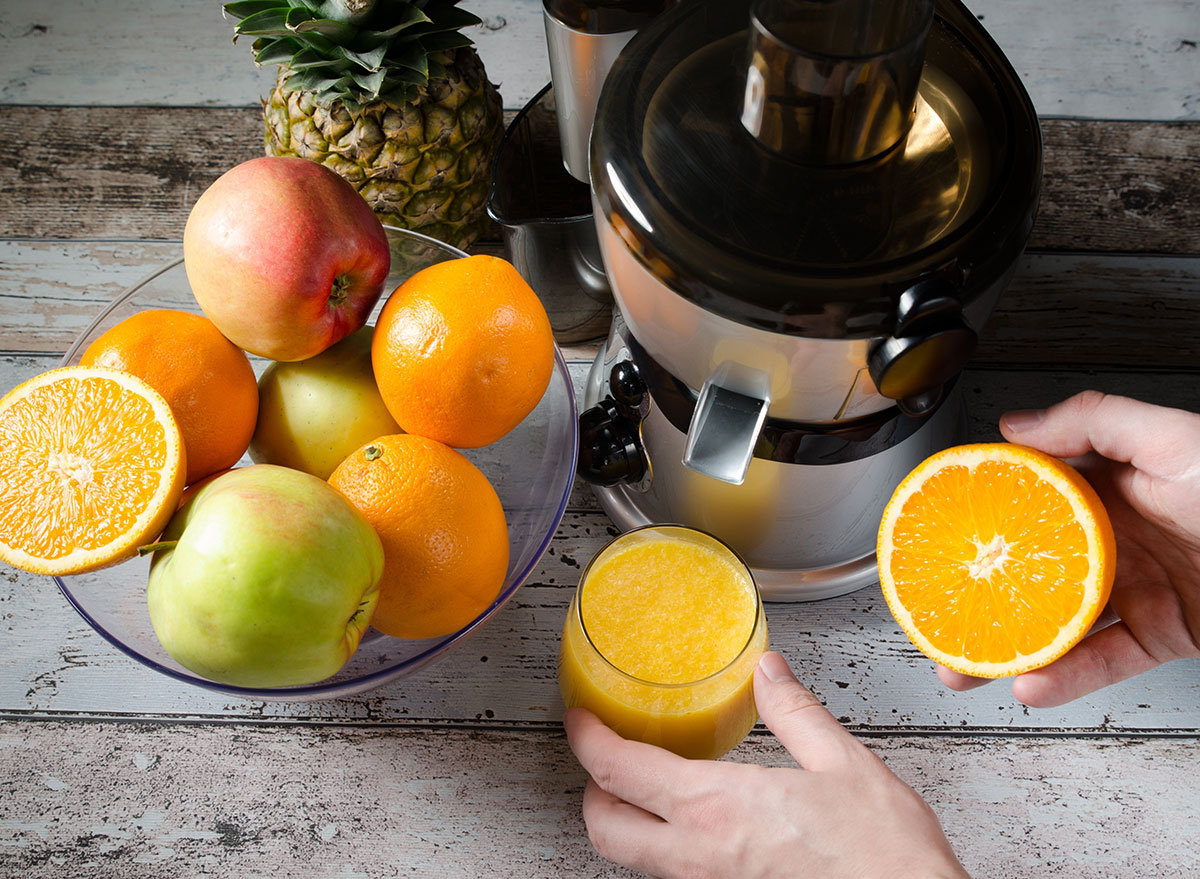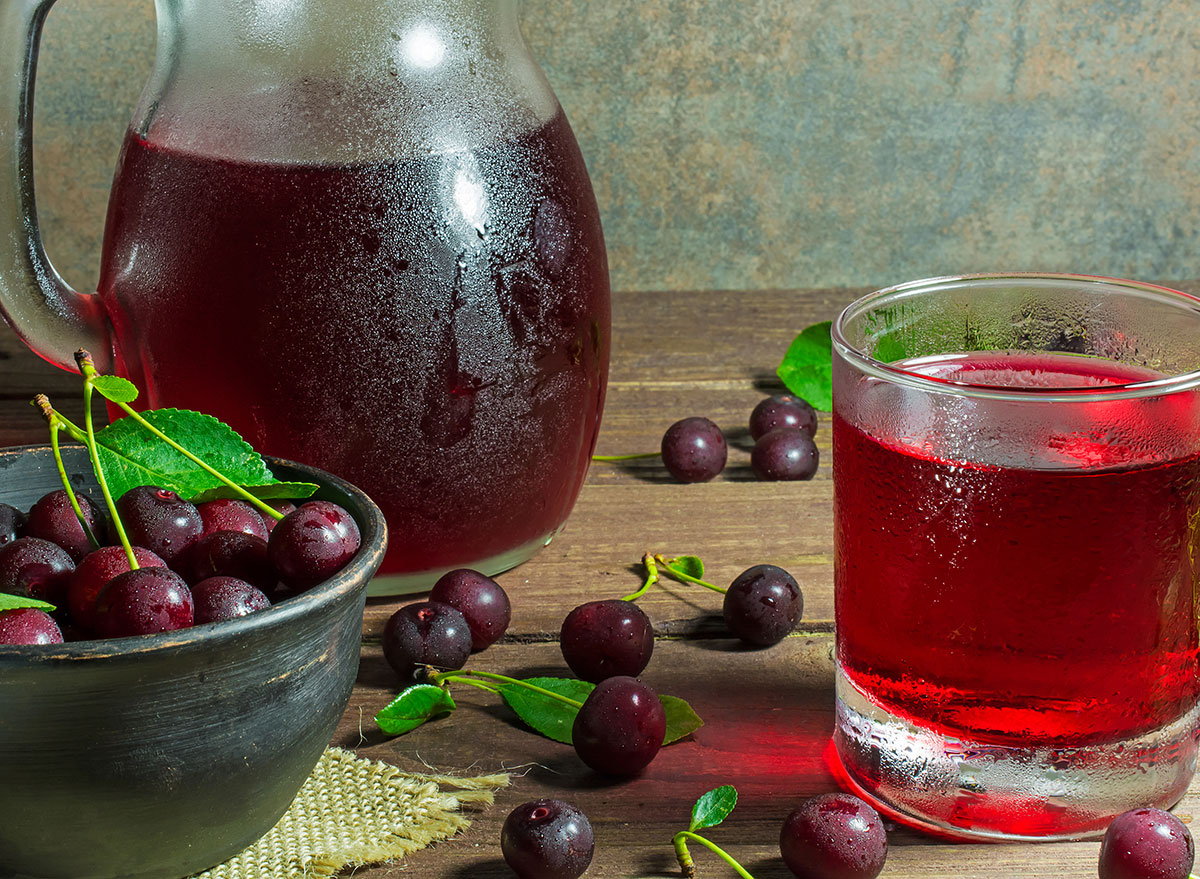The Secret Drinking Trick to Reduce Inflammation, Says Expert

You do a lot of things to protect yourself from injury and infections. You take the right precautions, you watch out for dangerous situations, and lately, you’ve been wearing masks as well to help stave off infections. The body has its way of protecting itself as well, and that’s through inflammation. This process causes the body to send more white blood cells to an area to help it fight off any potential injury or infection.
“Inflammation is your immune system’s natural response to protect your body from infection and injury,” says Dr. Cedrina Calder, a health expert and board-certified preventive medicine doctor.
While it’s helpful that our body has this defense mechanism, too much inflammation can be a bad thing. But there are ways to reduce inflammation including one simple drinking trick—drinking fresh juice! And we’re not talking about the kind you buy at the store, like these 10 Fruit Juices to Always Leave on Grocery Store Shelves.
“In addition to eating fruits and vegetables, you can juice them,” Calder says. “Drinking your fruits and vegetables may help you increase the number of essential vitamins and minerals you consume per day.”
According to Harvard Health, tomatoes and other fruits such as strawberries, blueberries, cherries, and oranges, are among the best foods to help reduce ongoing inflammation. Juicing these fruits makes consuming more of these inflammatory-reducing foods easier, especially in a tasty way. So don’t hesitate to make some freshly-squeezed orange juice in either a juicer or a blender—just be sure to keep your sugar intake in mind when consuming.

Combatting inflammation isn’t the only health benefit of drinking juice, of course. Juice is typically a great source of essential vitamins and nutrients, can help reduce belly fat, and can even help improve your sleep.
A study from Oregon Health and Science University even touts drinking tart cherry juice as a more effective and safe way to treat inflammation than taking medications such as ibuprofen.
It’s important to understand the different kinds of inflammation. There’s acute inflammation, which typically goes away after hours or days. Then there’s chronic inflammation, which is long-lasting. When left untreated it can lead to a host of other health problems including cardiovascular disease, cancer, diabetes, rheumatoid arthritis, asthma, and could potentially lead to the development of Alzheimer’s disease as well.
Experts say the best way for treating inflammation is through weight loss, eating more fruits and vegetables (as Calder suggests), and consuming fewer foods containing saturated and trans fats.
While acute inflammation isn’t ideal, Calder says to be most cautious with chronic inflammation, as that’s the type that can lead to further diseases and continued health problems.
“When inflammation occurs over a long period of time it can be harmful to the body,” says Calder.
For even more healthy tips, read these next:
- Popular Drinks That Increase Inflammation, Says Science
- The Worst Habits for Inflammation, Says Science
- The #1 Best Food to Reduce Inflammation and Slow Aging, Experts Say